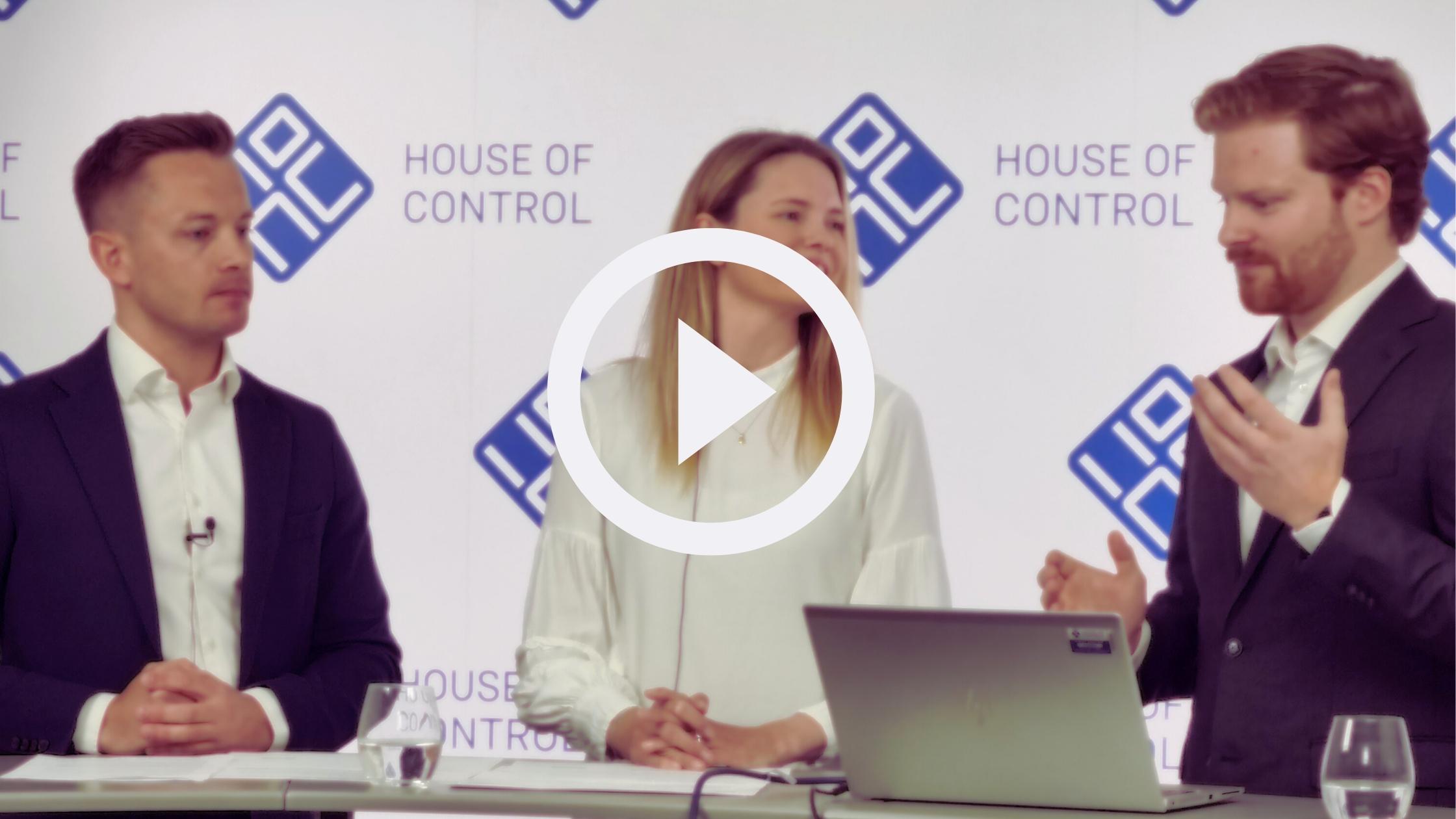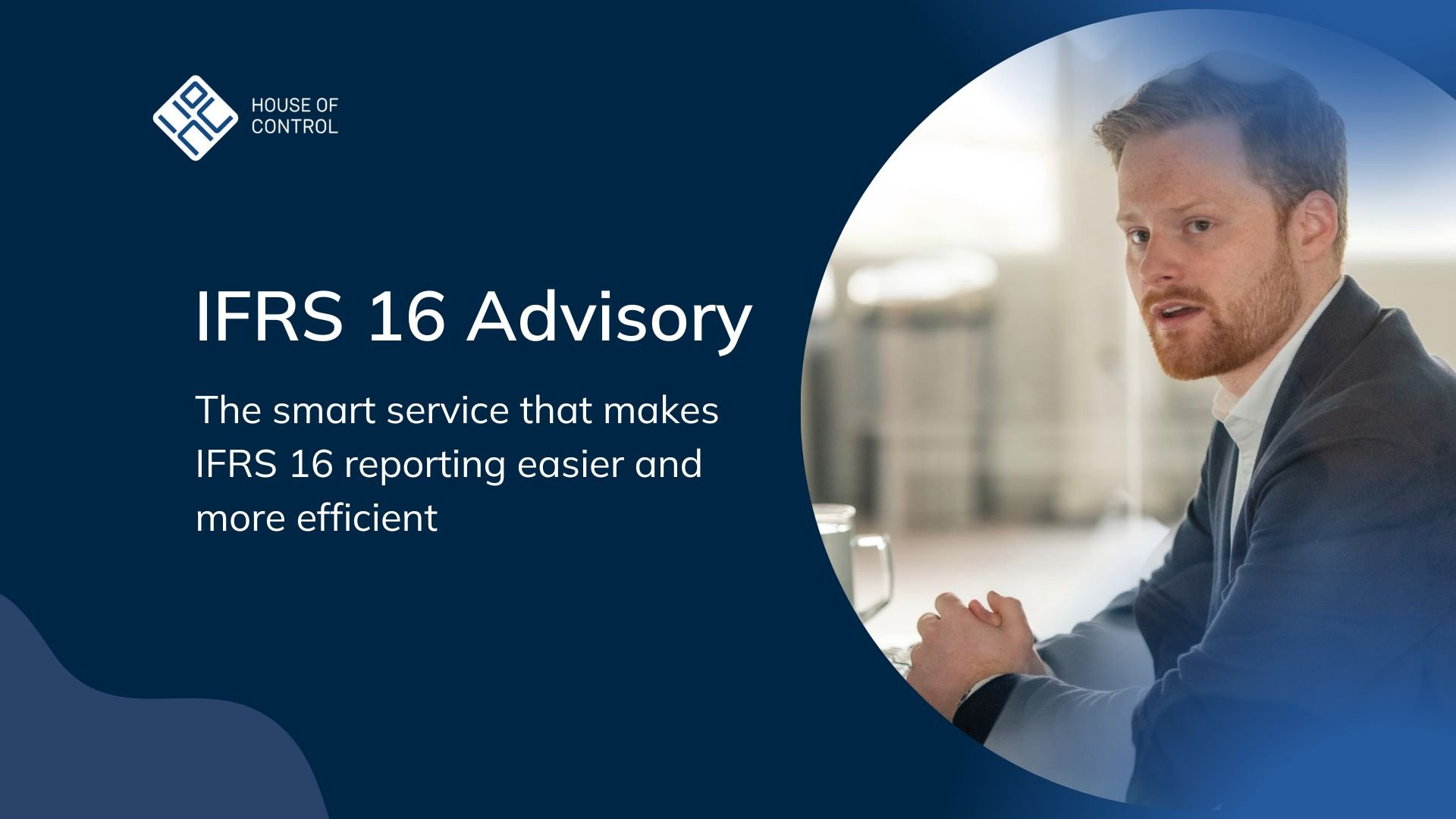Mastering ongoing IFRS 16 compliance
House of Control’s product manager shares what it takes to manage IFRS 16 compliance on an ongoing basis.
Complying with IFRS 16 is not a one-time task. For finance managers, it’s an ongoing responsibility that requires continuous monitoring, accurate reporting, and diligent updates to accounting records.
While the initial implementation may have been a significant milestone, the real challenge lies in maintaining compliance over time.
Product Manager Karl Oscar Rosli at House of Control is very familiar with the challenges CFOs and the finance department meet when it comes to ongoing IFRS 16 compliance. He has spoken to several hundred Scandinavian finance professionals using House of Control’s industry-leading solution for IFRS 16 compliance.
“IFRS 16 fundamentally changes how leases are accounted for, moving them onto the balance sheet to provide greater transparency. However, leases are dynamic. Terms may change, payments can vary, and contracts might be renewed or terminated. Each change requires updates to ensure compliance. Failure to do so risks inaccuracies in financial statements, undermines decision-making, and could lead to regulatory scrutiny,” Karl Oscar says.
In this article, he talks us through managing IFRS 16 contracts before, during, and after reporting periods, highlighting where technology can help and what must be done manually.
Managing IFRS 16 before reporting periods
Preparing for IFRS 16 compliance can seem daunting, but breaking it down into clear steps makes it manageable Karl Oscar explains:
“Successful compliance starts with preparation. Before the reporting period, finance teams must focus on key areas like reviewing lease agreements, classifying leases, and setting up effective tracking systems. Training the team is equally important to ensure everyone understands their roles.”
For companies dealing with leases, the first step is to document all agreements, including terms, payment schedules, and renewal clauses. It’s also essential to figure out which leases are covered by IFRS 16.
“Not every lease is in scope. For example, short-term leases or those involving low-value assets might be excluded. Classifying leases correctly saves time and avoids errors later,” he says.
An effective tracking system is a must. Whether you use spreadsheets or specialized software, the goal is to keep tabs on metrics like start dates, payment amounts, and end dates. Training the finance team ensures they’re equipped to handle these tasks. As Karl Oscar notes:
“Teams need to understand both the terminology and the practical steps for compliance. A well-trained team reduces mistakes and speeds up processes.”
Staying on track during reporting periods
Once the reporting period begins, staying organized is crucial. Karl Oscar highlights the importance of keeping up with lease changes:
“Any updates, like new payment terms or extended contracts, should be recorded immediately. This ensures your financial records stay accurate.”
Recalculating lease liabilities and right-of-use assets can be time-consuming without the right tools. Automated systems like those offered by House of Control can handle these calculations and reduce the risk of errors.
“It’s crucial to monitor variable lease payments as well. Variable payments tied to usage or performance need special attention. Tracking them in real time prevents surprises at the end of the period,” he says.
Collaboration with auditors is another key aspect. Regular communication helps ensure your approach aligns with compliance requirements and avoids unexpected issues.
Reflecting and improving after reporting periods
After the reporting period ends, take time to review and optimize your processes. Karl Oscar explains:
“This is the time to analyze your data for discrepancies and refine your methods. If manual tasks slowed you down, consider investing in automation to save time in the future.”
Preparing for upcoming changes is also vital. Anticipating new leases or regulatory updates ensures your company stays ahead of compliance demands.
“Staying proactive is key. It’s much easier to adapt to changes when you’re prepared,” says Karl Oscar.
The role of technology in simplyfing compliance
“Technology plays a significant role in managing IFRS 16. Tools that automate calculations and provide real-time updates can make a big difference. Automation saves time and reduces errors. A good system should also work well along your ERP and accounting tools,” he says.
While technology handles many tasks, some things still require human expertise. Karl Oscar points out that negotiating lease terms and interpreting contract language can’t be automated. Skilled finance professionals are essential for making informed decisions.
Key skills for effective compliance
To manage IFRS 16 effectively, finance professionals need a mix of skills. Attention to detail is crucial for spotting errors in lease terms. Analytical thinking helps in making sense of complex data, while strong communication skills ensure stakeholders understand the impacts of lease changes. Lastly, technical proficiency is vital for using compliance tools effectively.
“Combining technology with expertise allows companies to simplify compliance and improve financial management. With the right approach, IFRS 16 compliance can become an opportunity to strengthen transparency and efficiency,” Karl Oscar concludes.



